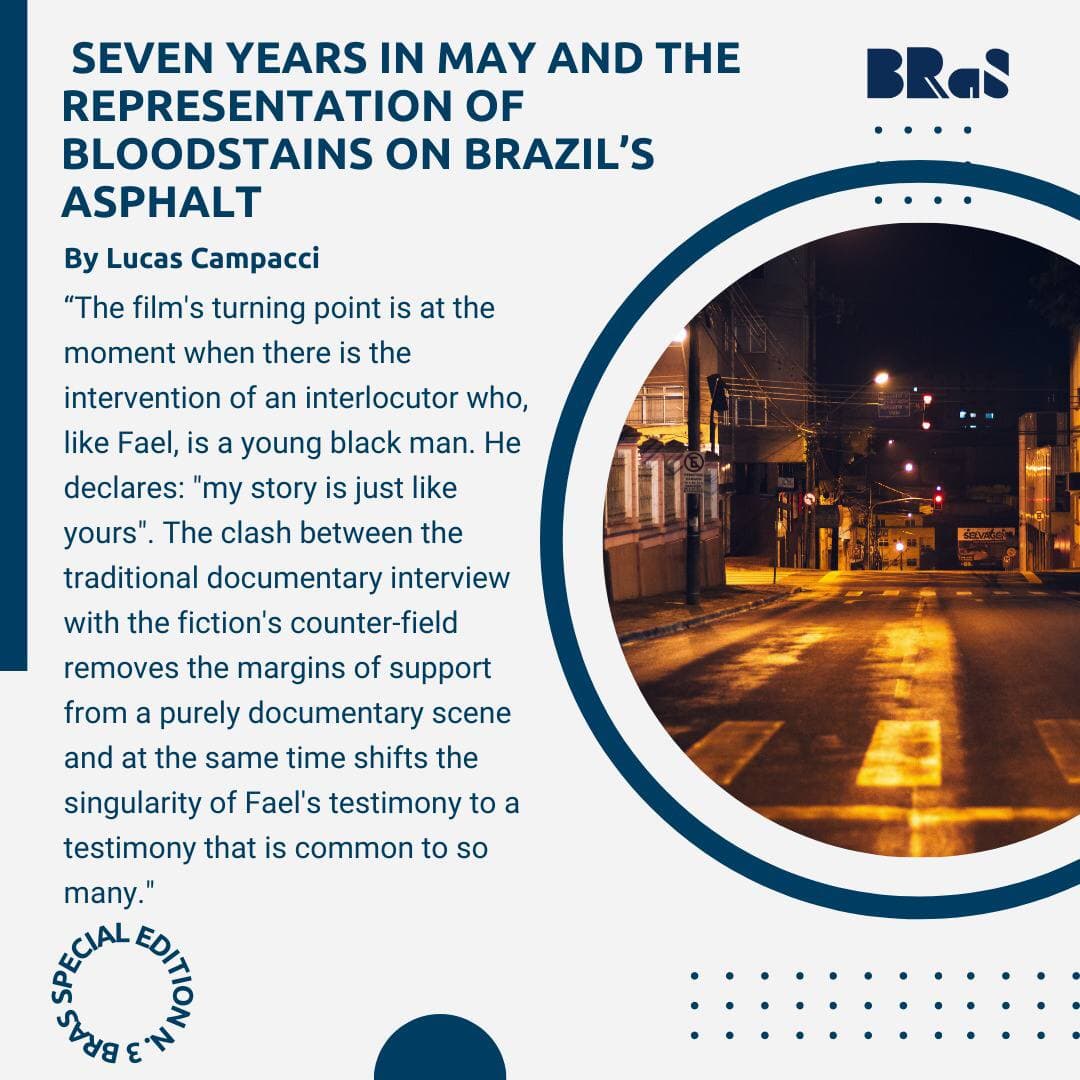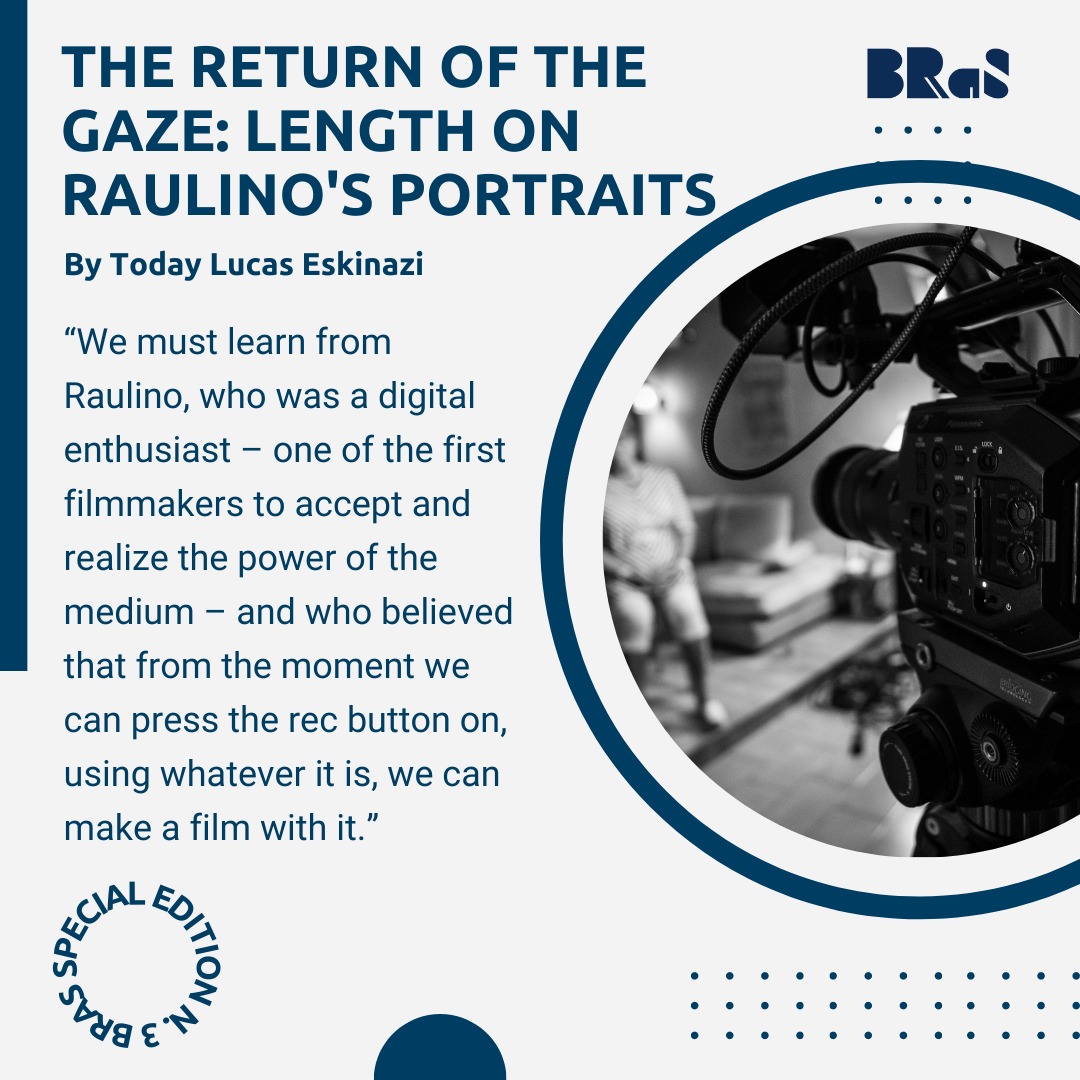by Pedro Andrada*
Edited and reviewed by Anna Paula Bennech and Giovanna Imbernon
Organized by Elcio Basilio
The scene is iconic; one that hits the retina. After two weeks of strike, more than 100,000 workers gathered on the soccer field of Vila Euclides, in São Bernardo, stood their arms up into the air to vote following the instructions that resound from the stage[1]. The sea of hands waves under the hot sun, and the workers shout out in unison the name of Lula – the metallurgical union’s great leader. In one of the most famous documentaries about the ABC’s strike, Linha de Montagem (1981), by Renato Tapajós, the fury of the raised arms and hands appears, at least half a dozen times, in the several political assemblies that took place between 1979 and 1980.
New times in the country. It was the most expressive strike since the beginning of the military dictatorship (1964), while in the government, a political reopening was running through. Salary cuts reached their limits, and urbanization was growing fast, resulting in intense migration flows. Despite countless censorships, Brazilian cinema produced, during the 1970s and at the turn of the 1980s, a generous amount of films about industrial workers and ABC’s great strikes. There are more than 20 “metallurgical documentaries” and multiple resonances in fiction.
In the essay “Operário, personagem emergente”, the film critic Jean-Claude Bernardet (1980) states that the factory worker is rarely portrayed in Brazilian movies before the 1970s. The representation of the worker was restricted, and, above all, to the image of the peasant and struggle for agrarian reform.[2]
Many of the documentaries from this period are directly related to the union movements, often conceived as communication pieces or historical reports. Other films intended to amplify the message of those workers, reaching out the public opinion, although their productions were not involved with the unions. Their social function was oriented by a certain political trend that, in turn, shaped them as oeuvres.
Concerning fiction, much of the emerging filmography about factory workers carried the insignia of sociological discourse. According to Bernardet, in this production, we will mainly find what he calls “thesis worker”: an ideal type of worker, stigmatized by a linear awakening class consciousness and the great concept of History that weighs on their shoulders. The worker is “explained” rather than “experienced”.
Without delving into the merits of which movies correspond to the scientific discourse conceived by Bernardet, I would like to emphasize a punctual, but notable, exception. In this particular case, the feeling of refusal to estranged labor, so clairvoyant in the strike process, took its negative form, that is, insurrectionary, explosive, refusal as an end in itself. João Batista de Andrade, who had made two documentaries in 1979 about the ABC´s metalworkers, released his third fictional film the following year, O Homem que Virou Suco [The Man That Was Turned into Juice] (1980).
The film is the director’s most known work and it is still widely commented on by researchers and other writers. It had some commercial success in Brazil after receiving the great prize at the Moscow International Film Festival in 1981.
The story takes place in São Paulo and narrates the mishaps of the poet Deraldo, who had recently migrated from Paraíba. He is mistaken by the absurd physical similarity to José Severino – both characters played by José Dumont. Severino is wanted by the police for stabbing his North-American boss on the occasion of the 1979 symbol-worker award ceremony[3]. Consequently, Deraldo becomes a fugitive too, once he has no documents to prove his real identity. Then, he realizes that the only way to get his regular life back is finding his double Severino, the model worker.
A singular character in Brazilian filmography, Deraldo refuses, with a certain amount of pleasure, the good worker’s morality – guardian of the family and an honorable profession, proud of his technique and talent, if with appropriate conditions and remuneration. His accurate lucidity when facing oppression does not turn him into a spokesperson for the proletariat, nor does engender any epiphany in which workers become aware of the need for struggle organization; although, at the end of the narrative, we witness a small but relevant deviation: confronted by the police officer seizing his booklets, Deraldo recites some verses on the unity of the people to a group of passersby. In this singular moment of Deraldo’s journey – in which his negative refusal meets the demanding refusal of the strikers –, the thousands of raised ABC metalworkers’ hands – mentioned hereinabove – also appear in João Batista’s film. Scenes of the large meetings in the Vila Euclides soccer field invade fiction abruptly as if they would reinforce the poet’s verses. It seems that for the director, Deraldo’s anarchical refusal should be, at least once, counterbalanced by the contagious victory of the united workers, represented, once again, by the agitated wave of the workers’ hands.[4]
On the one hand, it does not seem easy to associate Deraldo with the sociological stigma of the proletarian. On the other, he does not fit into the outdated stereotype of the trickster either, dialectically oscillating between order and disorder, although both share a discontentment with any regular kind of job. The trickster – a simplistic translation of “malandro”, in Brazilian Portuguese – was the main expression of marginality in Brazilian cinema until then. Differently, Deraldo does not get involved in swindles nor gambling, testing his skills against those who build the trickster’s fame. As Deraldo says, “if I knew who invented the job, I’d have them shot”. His revolt is based on contempt, but it does not evoke feelings of self-pity; the opposite, it allows him to get a certain satisfaction from the devilish way he usually resigns from the jobs he gets. Deraldo seeks to overcome the poor dilemma of the character as a victim built up from failure; he is, in the words of João Batista, “a character who aggressively lives with the spectrum of his defeat, without accepting it” (Caetano, 2004).
Therefore, the poet neither would correspond to the “thesis worker” nor to the servility of the doormat worker, the “strikebreaker”, represented by Severino, from whom Deraldo seeks to unravel his own destiny. Thus, it is possible to describe Deraldo as the “antithesis worker”, rephrasing Bernardet’s terms. His role can only be affirmed through the denial and opposition – distorting the reflection of Severino – of the obedient worker who goes due to his submission to employers. Yet, on the other side of the mirror, Deraldo also looks like a crazed inopportune man, incapable of spending more than a few hours in the jobs he gets. Voluntarily excluded from the race of “winners”, this refusal produces a certain madness, like his servile double, albeit of another order: that of inadequacy to neoliberal imperatives.
[1] On March 14, 1979, ABC metalworkers were called out on a massive strike. The urban region of the ABC is formed by the cities of Santo André, São Bernardo, São Caetano and Diadema. At that time, these municipalities around the city of São Paulo concentrated a large number of multinational industries, such as car manufacturers, Volkswagen, Mercedes-Benz, Ford, etc.
[2] Bernardet affirms that the phenomenon of the factory workers’ representation could not be understood considering only the new context of struggle and the growing strike movements at that time. Against this argument, the author recalls even bigger strikes in the 1950s, which, however, were not documented by the national cinema. One should, therefore, consider the very transformations in the cinema field and its recent insertion in the capitalist dynamic, in addition to the proletarianization of the movie directors, that lost their social and economic prestige during the dictatorship.
[3] The 1979 “symbol-worker award” is a parody of the “standard-worker award”, created in 1955 by the newspaper O Globo. In the following year, it became a national competition in partnership with SESI (Social Service of Industry). The scene, opening João Batista’s movie, was shot during the real award ceremony that took place at the Federation of Industries of São Paulo (FIESP). In it, we can witness the truthful speech of FIESP’s president at the time, Theobaldo de Nigris: “…and to be a great nation, we need your constant dedication to work, assiduity, responsibility towards the family, the high degree of companionship, from discipline to the principles and laws that govern our country”. At the end of the party, without anyone knowing, João Batista shot the scene in which Severino stabs his boss. As the director later reported, the industrialists only authorized the filming because he omitted the purposes of the scene.
[4] Jean-Claude Bernardet also commented on these documentaries scenes in João Batista’s film in another text (Bernadet, 2003). His analysis is brilliant, but it differs from ours regarding the emphasis.
References
Bernardet , Jean-Claude. 2003. Cineastas e imagens do povo. São Paulo: Companhia das Letras.
Bernardet, Jean-Claude. 1980. “Operário, personagem emergent.” In Anos 70: Cinema, edited by José Carlos Avellar, Jean-Claude Bernardet, and Ronald Monteiro.Rio de Janeiro: Europa.
Caetano, Maria do Rosário. 2004. João Batista de Andrade. Alguma solidão e muitas histórias. São Paulo: Imprensa Oficial do Estado de São Paulo, 2004
* Pedro Andrada is a Ph.D. candidate at the University of São Paulo (USP), in the Department of Visual Arts. His current research investigates practices of unproductivity and the refusal of labor in the artistic context. As an artist, he has participated in various exhibitions. He also has been working for over ten years in educational and curatorial projects in museums, schools, and cultural institutions.








